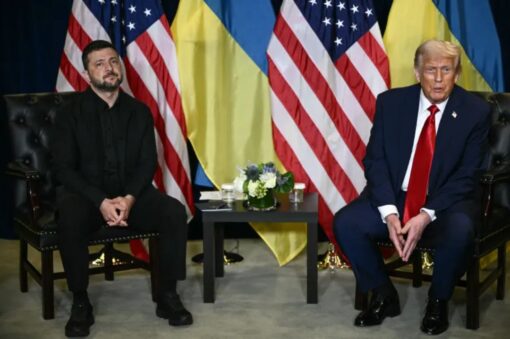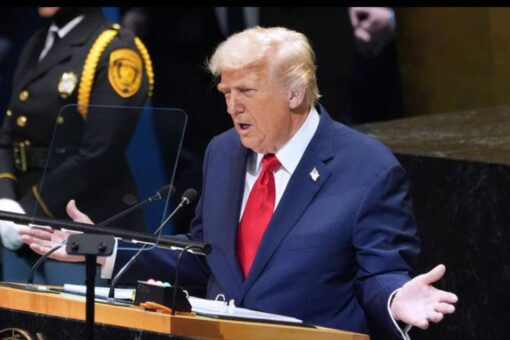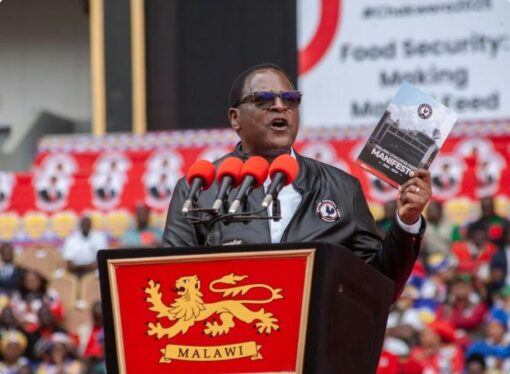United States President Donald Trump made a stunning reversal in his Ukraine policy during a high-profile appearance at the United Nations General Assembly in New York, declaring that Kyiv could win back every inch of its land seized by Russia.
The statement, delivered both in person to Ukrainian President Volodymyr Zelenskyy and later amplified on his Truth Social account, marked a sharp departure from his earlier insistence that both sides would need to cede territory to achieve peace.
Trump’s new position electrified the diplomatic halls of the UN and sent ripples through European capitals. For months he had projected skepticism over Ukraine’s chances, telling Zelenskyy earlier this year in a tense White House meeting that he did not “have the cards” to achieve a favorable deal.
On Tuesday, however, the American leader lavished praise on Ukraine’s resilience, calling it “pretty amazing actually” and pledging that with the financial backing of NATO and the European Union, the war’s original borders were “very much an option.”
The reversal came as the war, now dragging into its fourth year since Russia’s full-scale invasion in February 2022, shows no signs of abating. Moscow occupies roughly 20 percent of Ukrainian territory, including Crimea, which it annexed illegally in 2014.
Trump’s earlier flirtation with the idea of a land-for-peace arrangement had angered Kyiv and its allies, who have long maintained that only the restoration of full sovereignty could bring lasting peace.

In his post, Trump sharpened his criticism of Russia’s campaign, describing it as a failure of strategy and leadership. He called Moscow a “paper tiger” and said Russian forces had been “fighting aimlessly” in a war that a “real military power” would have finished in a week.
The attack on Russian credibility was one of the sharpest public rebukes he has issued against Vladimir Putin, a leader he had once described as someone who could be negotiated with.
For Zelenskyy, who has struggled to keep international focus on Ukraine amid multiple global crises, the words offered a badly needed morale boost. Standing beside Trump in New York, the Ukrainian president thanked him for his “personal efforts to stop this war” and emphasized that the U.S. position could be a “game-changer.”
He also hinted at possible future U.S. security guarantees once the conflict ends, a shift that would contradict Trump’s previous opposition to NATO membership for Ukraine.
Diplomats at the UN reacted with surprise when news of Trump’s declaration broke. According to a diplomatic editor James Bays, many European foreign ministers had been bracing for more ambiguity from the American leader but were instead confronted with a sweeping endorsement of Ukraine’s maximalist position.
“We seem to have a complete change in the U.S. position here,” Bays said, noting that the Alaska summit between Trump and Putin just weeks earlier had appeared to suggest the opposite path of territorial compromise.
The announcement also raised questions about the future of U.S.-Russia relations. Trump declined to say outright whether he still trusted Putin, telling reporters, “I’ll let you know in about a month from now, OK?” His hedging, however, was paired with some of his strongest warnings yet to Moscow.
He endorsed the idea that NATO states should be prepared to shoot down Russian aircraft violating allied airspace, after recent incidents in Estonia and Poland heightened alarm about potential spillover.
The timing of the statement could not be more significant. NATO recently scrambled jets after Russian MiG-31 fighters entered Estonian airspace, an intrusion that lasted 12 minutes and provoked Estonia to demand urgent consultations with allies.
Poland has also accused Russia of repeatedly violating its skies with drones, describing the incursions as acts of aggression. NATO’s leadership has warned Russia that it will employ “all necessary military and nonmilitary tools” to defend its territory, underscoring the seriousness of the situation.
By aligning the United States more closely with these positions, Trump is signaling a readiness to take a harder stance, even as he continues to portray himself as the world’s ultimate dealmaker.
During his campaign, he had famously promised to end the war in 24 hours, but after his fruitless Alaska meeting with Putin in August, he admitted that the Russian leader had “let him down.” Now, rather than framing himself solely as a mediator, Trump appears to be embracing the idea that victory for Ukraine is achievable and should be pursued.
This pivot could have major implications. For Ukraine, it represents the clearest signal yet that the White House might support a longer-term strategy rather than pressure Kyiv into premature concessions.
For Russia, it raises the specter of a more united Western front at a time when its economy is faltering under sanctions and its battlefield progress has stalled.
For Europe, particularly nations like Estonia and Poland on NATO’s eastern flank, Trump’s words provide reassurance that the alliance remains committed despite the political turbulence of the past year.

The transformation of Trump’s rhetoric also reflects the broader geopolitical stage at the UN General Assembly. With leaders from around the world pressing for solutions to conflicts in Gaza, the South China Sea, and beyond, Ukraine had risked slipping from the top of the agenda.
By delivering such a blunt endorsement of Kyiv’s territorial integrity, Trump ensured that the war remained front and center, forcing Russia back into the spotlight as the aggressor facing growing isolation.
Still, questions linger over how far Trump is willing to go beyond words. His history of setting shifting deadlines for action against Russia has left diplomats wary of treating his declarations as fixed commitments.
At the UN, he dodged questions about immediate new sanctions, noting only that decisions would be made “within weeks.” Skeptics argue that his unpredictability could undercut the very sense of stability his allies are seeking.
Yet for now, Ukraine is embracing the opening. Zelenskyy, whose government has lobbied relentlessly for more weapons, funding, and security guarantees, sees in Trump’s pivot an opportunity to lock in greater Western support. His description of Trump as a potential “game-changer” reflects not only gratitude but also the high stakes of Ukraine’s survival.
As Europe grapples with the fallout of Russian airspace violations and NATO sharpens its warnings, the U.S. president’s message reverberates: that Ukraine can and should win back what was taken.
It is a declaration that reshapes the contours of the debate, turning Trump from a skeptic into a champion of Ukraine’s territorial restoration, at least for the moment.
Whether this translates into decisive policy or becomes another episode in Trump’s unpredictable diplomacy remains to be seen, but at the UN General Assembly, his words landed with the force of a thunderclap.


